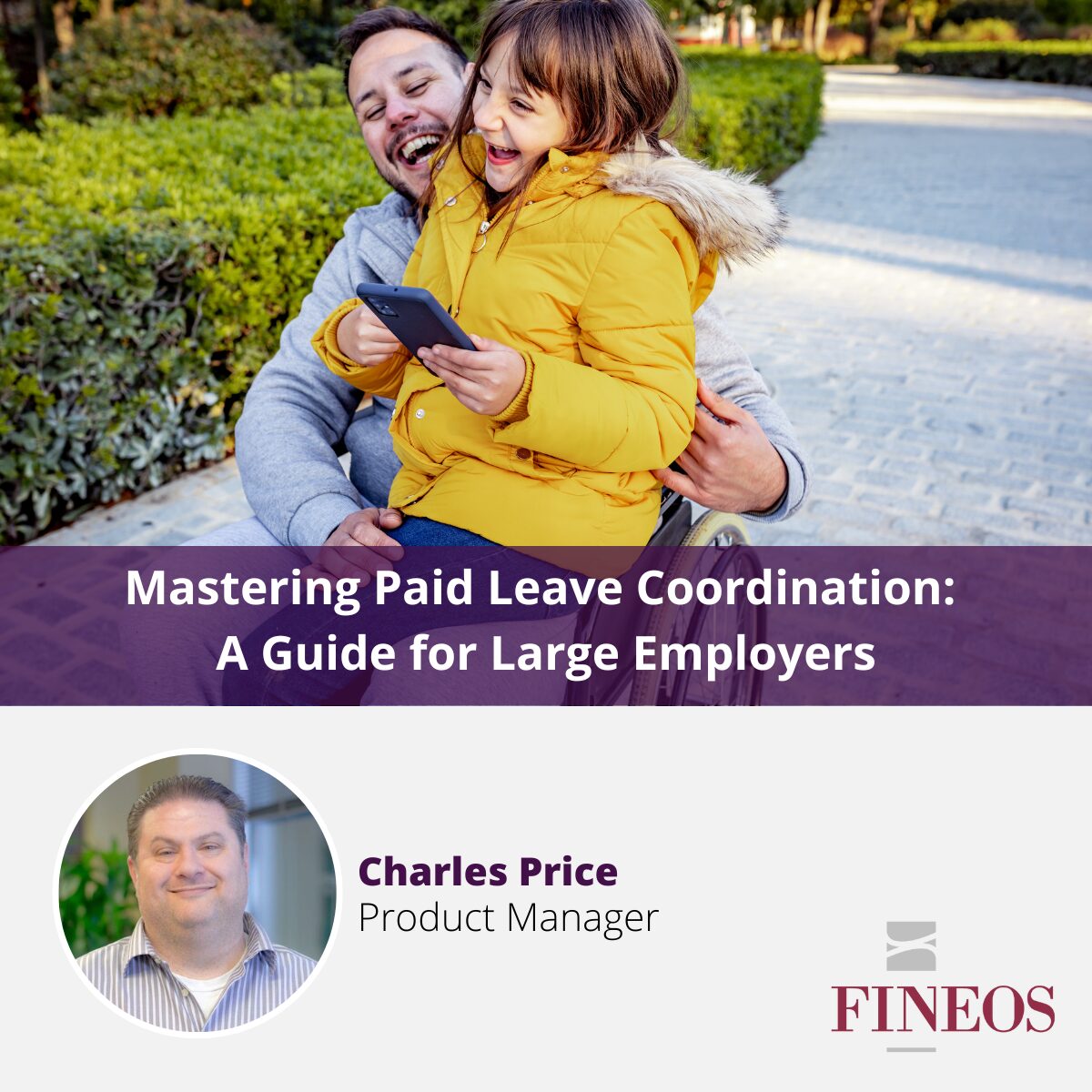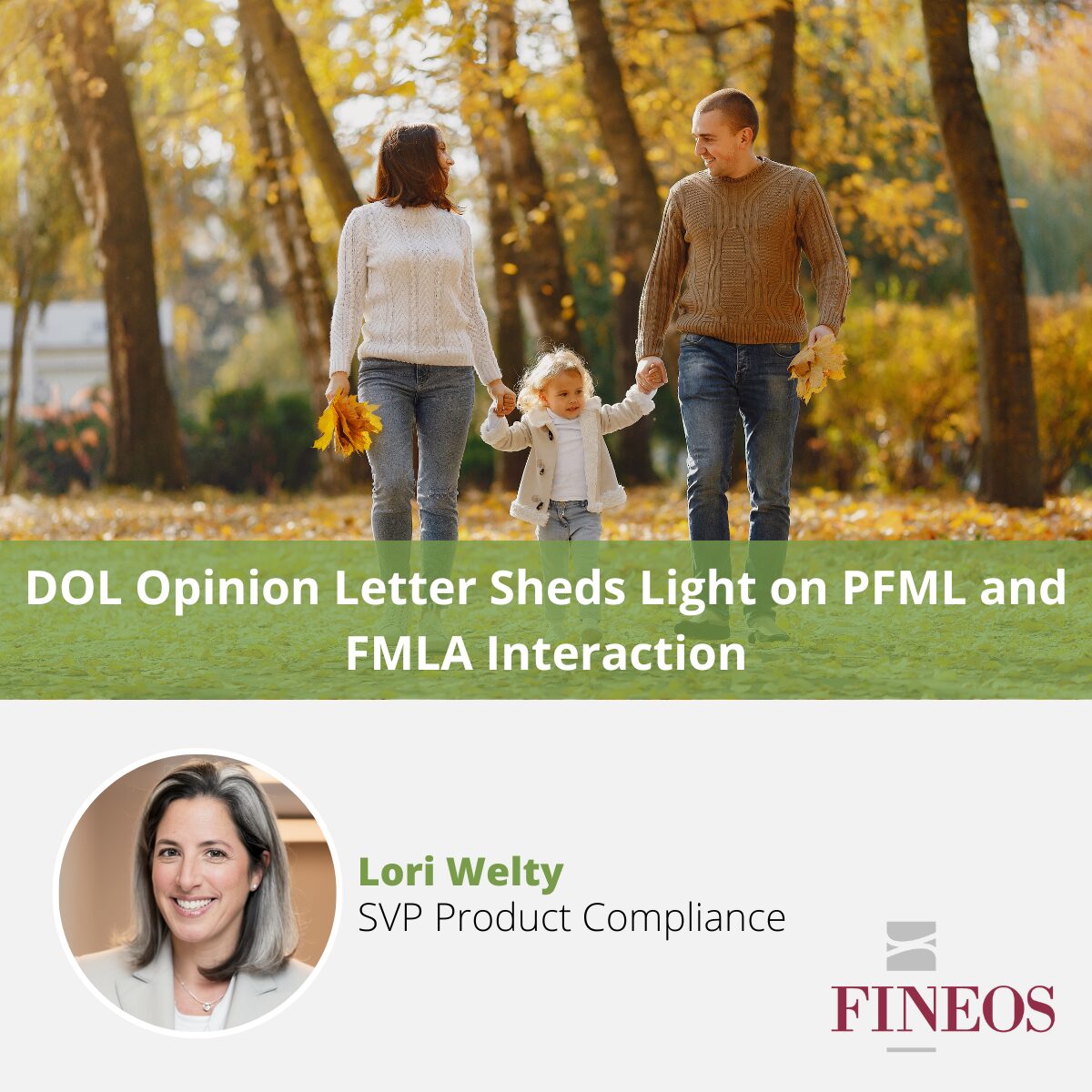Insurance carriers need agile absence management software to adapt in real time when new leave legislation goes into effect. In this blog, you’ll learn about the latest updates to leave laws in Connecticut and how FINEOS is helping carriers remain in compliance.
Employers in Connecticut should take note of amendments to the sick leave, family violence leave, and paid family and medical leave programs through Connecticut Senate Bill No. 5005, Senate Bill No. 222, and Senate Bill No. 220. Here’s what you need to know:
Expanded Connecticut Paid Sick Leave
When: Effective beginning January 1, 2025 (see phased implementation below)
Who: Employers must provide their employees with paid sick leave (PSL) according to the following phased schedule:
- On January 1, 2025: Employers with 25 or more employees in Connecticut
- On January 1, 2026: Employers with 11 or more employees in Connecticut
- On January 1, 2027: All employers
This does not include self-employed individuals or employers with a multi-employer health plan maintained pursuant to a collective bargaining agreement between a construction-related tradesperson employee organization and employers. Seasonal employees who work one hundred twenty days or less in any year or certain employees who are members of a construction-related tradesperson employee organization are also not covered by the law.
Prior to the change, the law covered employers with 50 or more service workers, which includes social workers, librarians, home health aides, cooks, bartenders, fast food and counter workers, waiters and waitresses, dishwashers, retail salespersons, and other similar jobs. The law no longer restricts coverage to employers of service workers.
What:
- Employees accrue at least one hour of PSL for every 30 hours worked (down from 40 hours worked), up to a maximum of 40 hours in a year. Employees can begin to use PSL 120 days following the start of their employment. Accrued unused PSL carries over to the next year, but an employer is not required to allow employees to use more than 40 hours of PSL during the year.
- An employer can choose to frontload PSL to an employee instead of using an accrual method. Employees can begin to use the frontloaded PSL at the start of the year. Employers that use the frontloading method are not required to carry over PSL.
An employee may use PSL for:
- Medical: an employee’s own health concerns, including an illness, injury or health condition, diagnosis, preventive medical care, or a mental health wellness day.
- Family care: caring for a family member with an illness, injury, or other health condition, who needs medical diagnosis, care, or treatment of a mental or physical illness, injury, or other health condition, or who needs preventive care.
- Safe leave: leave from work because of family violence or sexual assault of the employee or employee’s family member.
- Public Health Emergency:
- Business/school closure: closure by order of a public official, due to a public health emergency, of either an employer’s place of business, or a family member’s school or place of care.
- Exposure: when it has been determined by a health authority, health care provider, or an employer that an employee or family member poses a risk to the health of others due to exposure to a communicable illness, whether or not the employee or family member contracted the communicable illness.
An employer cannot require an employee to provide any documentation that their PSL absence is being taken for one of the purposes permitted.
Aside from the poster requirement that is already in the existing law, employers will also be required to provide written notice to their employees by January 1, 2025, or at the time of hire, whichever is later. The employer can use the model poster and written notice that will be provided by the Connecticut Department of Labor (CT DOL). For employers that do not maintain a physical workplace or for employees that telework or perform work through a web-based or application-based platform, employers can send the notice via electronic communication or by a conspicuous posting of such information on a web-based or application-based platform.
Amended Family Violence Leave
When: Effective October 1, 2024
What: Previously, the family violence leave law only covered victims of family violence, which encompassed certain violent acts or threats of violent acts between family or household members. The change expands the law to apply to victims of sexual assault, which would now allow them to take up to 12 days of unpaid leave for the following purposes: (1) to seek medical care or psychological or other counseling for physical or psychological injury or disability for the victim, (2) to obtain services from a victim services organization on behalf of the victim, (3) to relocate due to the sexual assault, or (4) to participate in any civil or criminal proceeding related to or resulting from the sexual assault. Employers with three or more employees must provide family violence and sexual assault leave to their Connecticut employees.
An employee may also take up to 12 days of Connecticut PFML and receive wage replacement benefits for these reasons.
Amended Paid Family and Medical Leave (Appeals Procedure)
When: Effective July 1, 2024
What: The Connecticut PFML law allows employees who were denied PFML benefits or were subject to penalties due to false statements or misrepresentation to file an appeal with the CT DOL Appeals Division. The amendment specifies certain procedural steps that must be followed in appeals to the court.
FINEOS can help with your state leave programs
FINEOS will be ready to administer these amended state leave programs. Using modern insurance technology solutions like the FINEOS Platform can help insurance carriers remain compliant and competitive when leave legislation is revised and new products are authorized by governing jurisdictions. Learn more about how a modern, integrated disability and absence management (IDAM) solution can help your organization adapt to this rapidly evolving market and remain in compliance.


